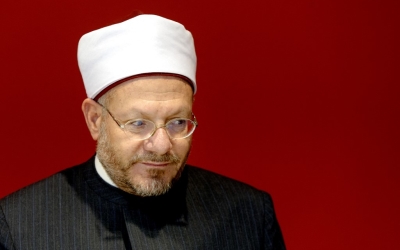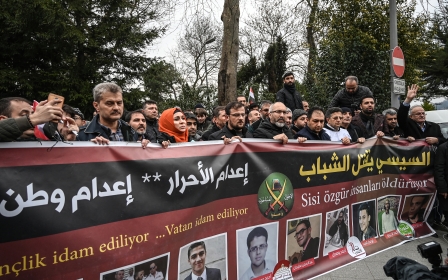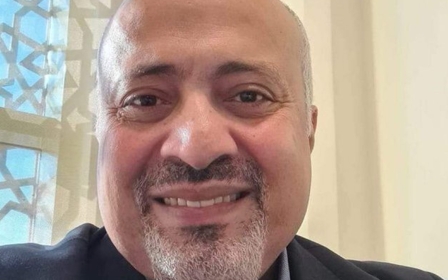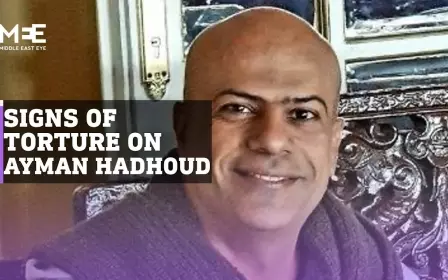Egypt's grand mufti was not officially invited by UK parliament as he claimed
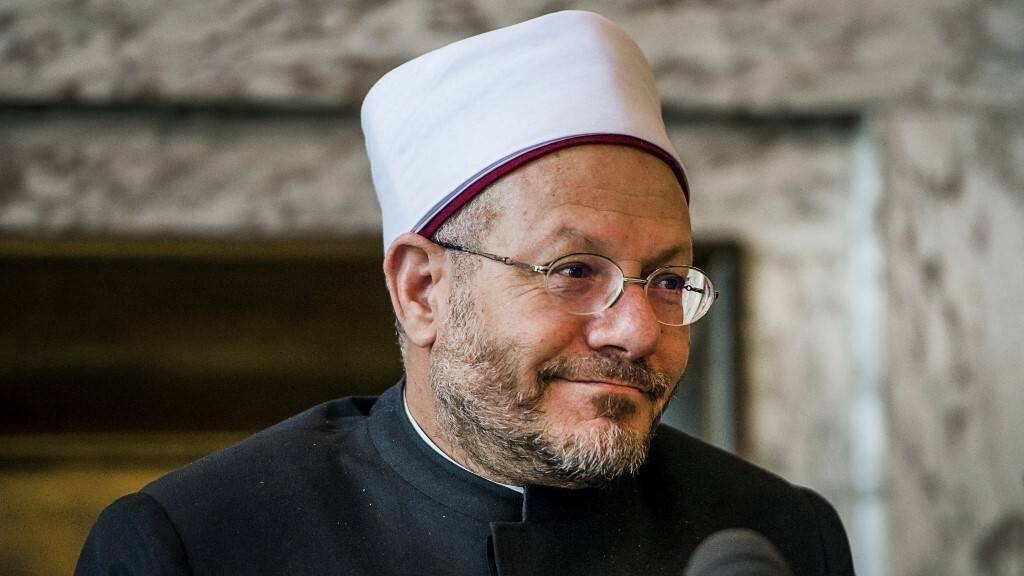
Egypt's grand mufti has not been invited to address the UK parliament despite reports in Egyptian state media, a parliamentary spokesperson told Middle East Eye on Tuesday.
Egyptian media reported on Sunday that Shawki Allam received an official welcome when arriving in the UK, where he was met by a delegation from the Home Office and was assigned a security detail. Egyptian media also published footage of a small motorcade escorting Allam to London.
New MEE newsletter: Jerusalem Dispatch
Sign up to get the latest insights and analysis on Israel-Palestine, alongside Turkey Unpacked and other MEE newsletters
However, House of Commons media relations manager Hannah Olbison told MEE that parliament has "no further information about the visit" of Allam to the UK.
Middle East Eye has learned from an Egyptian source that Allam was invited by the All-Party Parliamentary Group on Egypt, an informal and cross-party group formed by MPs and members of the House of Lords who have an interest in Egypt. APPGs have no official status within parliament.
According to a press release by Egypt's State Information Service (SIS) and a statement from Allam's office, the grand mufti's visit came following "an official invitation from the UK Parliament" and that he was "due to deliver a keynote speech before the House of Commons and House of Lords."
A Facebook post by the mufti's official page said on Tuesday that he delivered a speech in parliament, and showed a number of Egyptian government supporters waving flags and posters welcoming Allam.
The SIS also claimed that Shawki is also expected to meet with "senior UK officials and the mayor of London".
According to rights group Amnesty International, Allam has ratified hundreds of death sentences since his appointment as Egypt's grand mufti in 2013, the year that Abdel Fattah el-Sisi toppled the late President Mohamed Morsi in a military coup.
Since then, Egypt has been executing people at an unprecedented rate, making it the world's third-worst country in terms of the number of executions in 2020, according to Amnesty.
Morsi, affiliated with the Muslim Brotherhood, died while in custody in June 2019 in circumstances described by UN experts as "state-sanctioned arbitrary killing". Allam ratified the death sentence against Morsi.
'Unacceptable' visit
In a statement, the Muslim Association of Britain said it was "appalled" to learn that Allam was invited to speak to parliament.
"This invitation is truly unacceptable. We have to assume that whoever has invited him to the UK simply doesn't know how many innocent deaths he has personally facilitated," said spokesperson Mustafa al-Dabbagh. "His invitations must be rescinded and he must not be welcomed in our institutions."
Middle East Eye contacted the APPG on Egypt and the office of the London mayor for comment but did not receive a response by the time of publication.
'He is a man who should be tried under international jurisdiction for aiding and abetting crimes against humanity'
- Mohamed Soudan, Freedom and Justice Party
Mohamed Soudan, a London-based Egyptian activist and former senior member of Morsi's Freedom and Justice Party, said the visit was based on an invitation by the APPG on Egypt.
In a letter sent last week to Conservative MP Jonathan Lord, who chairs the APPG, Soudan denounced the visit, accusing Allam of committing "actions against Egyptian citizens that amounted to denying them the most basic of human rights, the right to life."
"No organisation or group that upholds the values of freedom and respect for human rights should offer such a man as Shawki Allam a platform," Soudan wrote.
"He is a man who should be tried under international jurisdiction for aiding and abetting crimes against humanity."
In Egypt, executions are carried out by hanging for civilians and firing squad for military personnel. When a court sentences a defendant to death, they are first given a preliminary sentence before their case is referred to the grand mufti, who issues an opinion.
Though non-binding, these opinions can be influential and the trial judge will consider them before confirming the sentence.
According to the rights group Reprieve, there have been at least 53 mass trials in Egypt since 2011, in which 2,182 people were sentenced to death. At least 17 children have received preliminary death sentences during the same time period.
Middle East Eye delivers independent and unrivalled coverage and analysis of the Middle East, North Africa and beyond. To learn more about republishing this content and the associated fees, please fill out this form. More about MEE can be found here.


